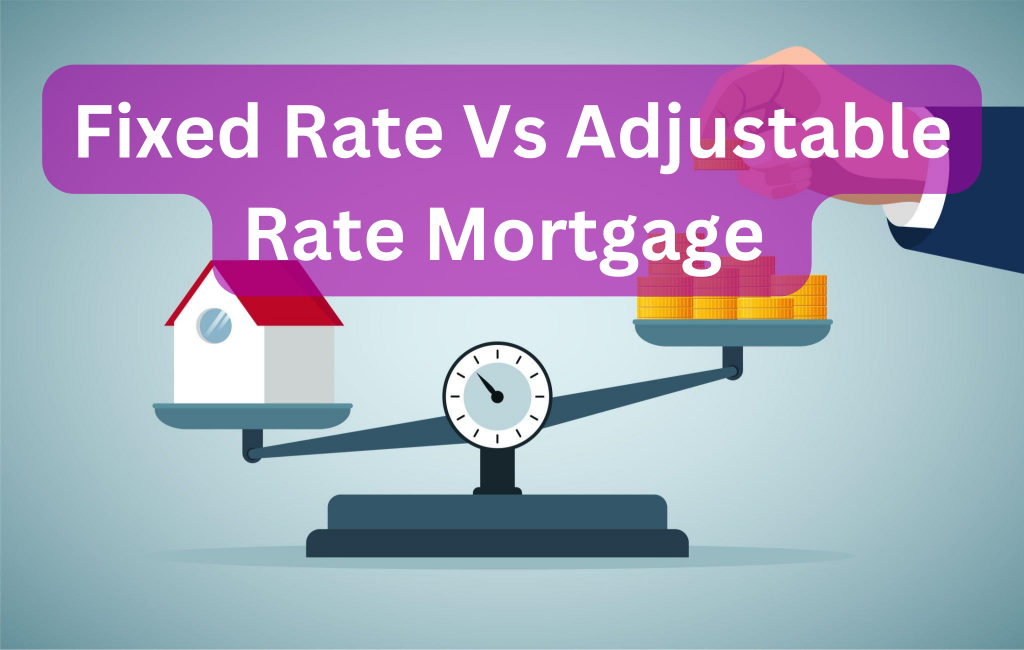Fixed Rate vs. Adjustable Rate Mortgage: Which one is right for you?

When it comes to purchasing a home, one of the most important decisions you will make is choosing between a fixed-rate mortgage and an adjustable-rate mortgage. Both options have their advantages and disadvantages, and choosing the right one for you can depend on your financial situation and your long-term goals. In this blog post, we’ll explore the differences between these two types of mortgages and help you make an informed decision.
Fixed-Rate Mortgages
A fixed-rate mortgage is a type of home loan that comes with an interest rate that remains constant for the entire life of the loan. This means that your monthly mortgage payments will stay the same throughout the repayment period, which is typically 15 or 30 years. The main advantage of a fixed-rate mortgage is that it provides stability and predictability, which can be especially beneficial for first-time homebuyers or those on a tight budget. With a fixed-rate mortgage, you’ll know exactly how much you’ll be paying each month, making it easier to budget and plan for other expenses.
On the downside, fixed-rate mortgages tend to have higher interest rates compared to adjustable-rate mortgages. This is because the lender is taking on more risk by locking in a rate for the long term. Additionally, if interest rates drop significantly after you’ve locked in a fixed rate, you won’t be able to take advantage of the lower rates without refinancing, which can come with its own set of costs and fees.
Adjustable-Rate Mortgages
An adjustable-rate mortgage (ARM), on the other hand, comes with an interest rate that can fluctuate over time. The initial rate is typically lower than that of a fixed-rate mortgage, which can make it an attractive option for homebuyers who are looking to keep their monthly payments low. However, after a certain period of time (usually 5 or 7 years), the rate can adjust up or down based on market conditions. This means that your monthly payments can also fluctuate, which can make budgeting more difficult.
The main advantage of an adjustable-rate mortgage is that it can be a good choice if you plan to sell your home or refinance before the rate adjusts. For example, if you only plan to live in the home for a few years or if you expect your income to increase significantly in the near future, an ARM can help you save money on interest during the initial period.
Which One Is Right for You?
Deciding between a fixed-rate and adjustable-rate mortgage ultimately depends on your personal financial situation and your long-term goals. Here are a few things to consider:
- How long do you plan to stay in the home? If you plan to stay in the home for a long period of time, a fixed-rate mortgage may be the better choice because it offers stability and predictability.
- How comfortable are you with risk? If you’re comfortable with the possibility of your payments fluctuating over time, an adjustable-rate mortgage may be a good choice.
- What is your budget? If you’re on a tight budget and need to keep your monthly payments as low as possible, an adjustable-rate mortgage can offer lower initial payments.
Ultimately, the best way to determine which type of mortgage is right for you is to speak with a mortgage lender or financial advisor. They can help you evaluate your options and choose the one that best fits your needs and goals.







